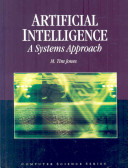Intelligence in Animals, Humans and Machines
To build software that is deemed intelligent, itís helpful to begin with a definition of intelligence. Intelligence can be simply defined as a set of properties of the mind. These properties include the ability to plan, solve problems, and in general, reason. A simpler definition could be that intelligence is the ability to make the right decision given a set of inputs and a variety of possible actions.
Using this simple definition of intelligence (making the right decision), we can apply this not only to humans, but also to animals that exhibit rational behavior. But the intelligence that is exhibited by human beings is much more complex than that of animals. For example, humans have the ability to communicate with language, but so do some animals. Humans can also solve problems, but the same can be said of some animals. One difference then is that humans embody many aspects of intelligence (the ability to communicate, solve problems, learn and adapt) where animals typically embody a small number of intelligent characteristics, and usually at a much lower level than humans.
We can use the same analogy on AI applied to computer systems. For example, itís possible to build an application that plays a world-class game of Chess, but this program knows nothing of the game of Checkers, nor how to make a good cup of tea. A data mining application can help identify fraud, but canít navigate a complex environment. From this perspective, the most complex and intelligent applications can be deemed intelligent from one perspective, but lack even the simplest intelligence that can be seen in the least intelligent of animals.
Note: Famed author Isaac Asimov once wrote about his experience with aptitude tests in the army. In the army, he scored well above the norm. But what he realized was that he could score well on tests that were developed by others that shared his academic bents. He opined that if the tests were developed by people involved in auto repair, he would have scored very poorly. The issue being that tests are developed around a core of expertise, and scoring poorly on one doesnít necessarily indicate a lack of intelligence.
Notes:
All have shared intelligences, but some have more than one kind of intelligence. What makes humans special is that we have multiple kinds of intelligence: language communication, problem solving, kinesthetic, etc.
Folksonomies: intelligence iq testing comparisons
Taxonomies:
/science/computer science/artificial intelligence (0.450083)
/law, govt and politics/armed forces/army (0.413461)
/technology and computing/hardware/computer (0.353658)
Keywords:
intelligence (0.993669 (positive:0.081720)), right decision (0.894810 (positive:0.595433)), humans (0.876116 (negative:-0.047595)), author Isaac Asimov (0.794739 (neutral:0.000000)), data mining application (0.788333 (positive:0.511675)), animals (0.758843 (negative:-0.121902)), multiple kinds (0.625977 (neutral:0.000000)), intelligent characteristics (0.619725 (positive:0.202020)), language communication (0.617099 (neutral:0.000000)), simpler definition (0.610825 (positive:0.813415)), academic bents (0.608262 (neutral:0.000000)), intelligent applications (0.605042 (positive:0.473639)), simple definition (0.602665 (positive:0.380067)), rational behavior (0.601121 (neutral:0.000000)), human beings (0.601033 (neutral:0.000000)), simplest intelligence (0.588005 (negative:-0.364733)), small number (0.585566 (positive:0.202020)), possible actions (0.585181 (positive:0.813415)), lower level (0.579924 (negative:-0.443287)), good cup (0.577030 (negative:-0.352403)), auto repair (0.574406 (neutral:0.000000)), world-class game (0.571063 (neutral:0.000000)), ability (0.568716 (positive:0.813415)), aptitude tests (0.564085 (neutral:0.000000)), complex environment (0.560550 (positive:0.545662)), problems (0.465814 (negative:-0.332426)), lack (0.421482 (negative:-0.506912)), properties (0.419815 (positive:0.480663)), set (0.418468 (positive:0.647039)), example (0.413312 (neutral:0.000000))
Entities:
Isaac Asimov:Person (0.851943 (positive:0.365584)), army:Organization (0.772802 (neutral:0.000000)), data mining:FieldTerminology (0.515758 (positive:0.511675)), Chess:Sport (0.514256 (neutral:0.000000)), fraud:Crime (0.493849 (positive:0.511675))
Concepts:
Problem solving (0.959333): dbpedia | freebase
Intelligence (0.645337): dbpedia | freebase
Complexity (0.434930): dbpedia | freebase | opencyc
Isaac Asimov (0.413083): dbpedia | freebase | opencyc | yago | musicBrainz
Definition (0.403218): dbpedia | freebase | opencyc
Mammal (0.398532): dbpedia | freebase | opencyc
Educational psychology (0.380495): dbpedia | freebase
Theory of multiple intelligences (0.375656): dbpedia | freebase






